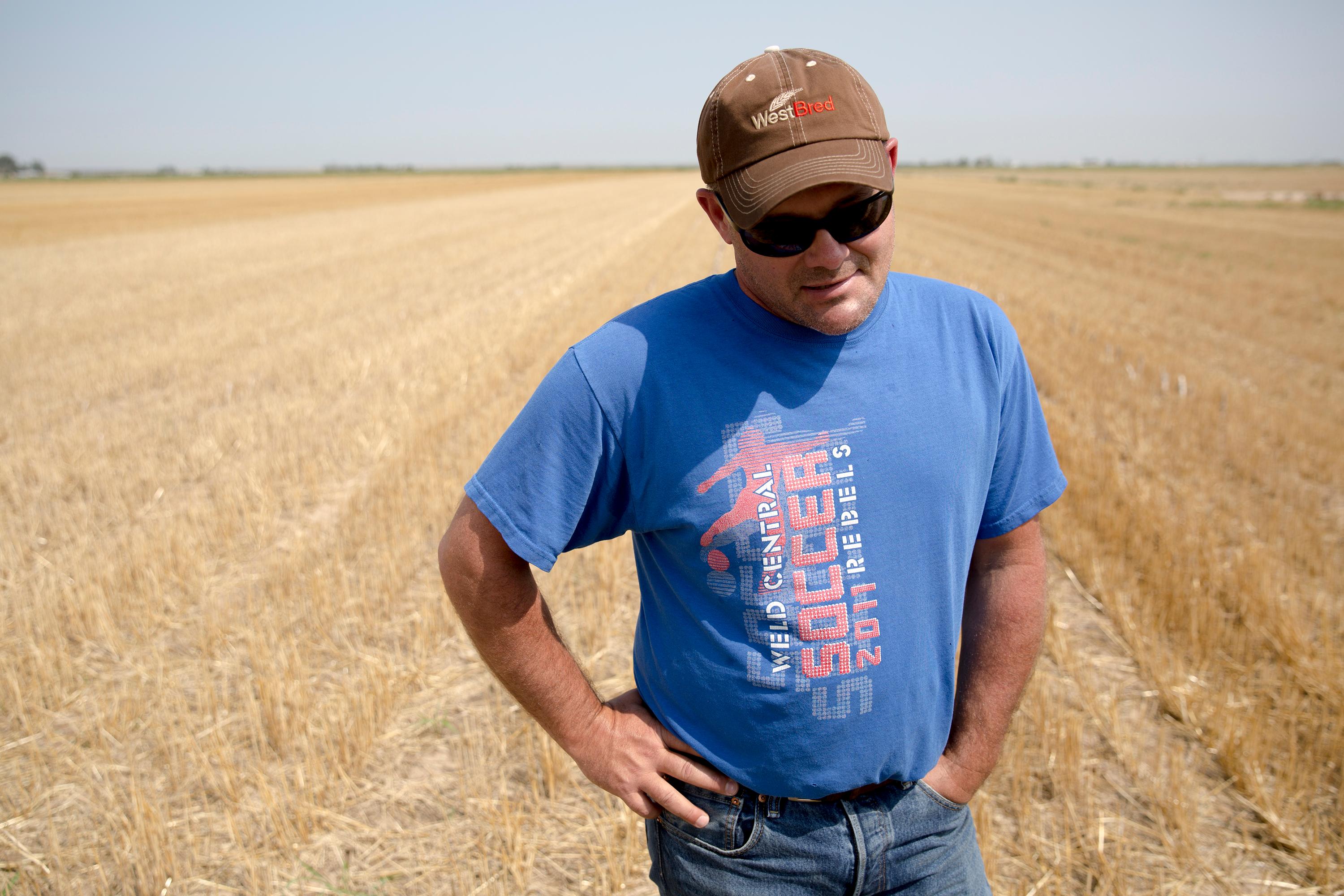

Constitutional Amendment 74 is one of the shortest measures on the Colorado ballot in November. In just two sentences, the proposal asks voters for more protections for private property rights and seeks payment for property owners if they’ve been wronged by government decisions.
The idea appeals to farmers like Marc Arnusch, who saw his wheat crop get hammered over the summer.
“We had a lot of hail that came at the wrong time….[it] basically cut our harvest to about 10 percent of what we expect as normal,” Arnusch explained.
While times are tough on the farm there is one bright spot: Arnusch leases water to Noble Energy for oil and gas development. If the government suddenly changes zoning or limits that work, and it has a negative effect on the value of Arnusch’s water, he wants Amendment 74 to make it easier to go to court and get money.
“When you talk about a takings to someone who owns a home or owns a small business they have a hard time making that connection,” Arnusch said. “To a farmer, a takings is everything.”
- Need Some Ballot Assistance? Read The Colorado Voter’s Guide To The 2018 Election
The term “takings” refers to when the government acquires property outright, but it also applies to when the government reduces the value of it. Amendment 74 would apply to water rights, mineral rights and private property. The courts would ultimately weigh the new claims that the amendment would presumably generate.
Right now, plaintiffs get compensated when their losses are between 70 and 90 percent. Amendment 74 would give judges and juries new guidelines.
“It will allow them to look back at the economic standard and say, maybe there isn’t just one exact number to go forward with,” explained the Colorado Farm Bureau’s executive vice president, Chad Vorthmann.
He believes that some landowners may even be able to get compensation if their loss is below 50 percent because “when you’re looking at takings cases they are very scenario specific.”

The farm bureau is the primary backer of Amendment 74 but it also got significant financial backing from the oil and gas industry.
Democratic Gov. John Hickenlooper called Amendment 74 “ridiculous.” Colorado Springs Mayor John Suthers, a Republican, labelled the proposal “a wolf in sheep’s clothing” because it sounds simple, but it would severely impede the actions of cities and counties.
“There’s no exception in this language that the government is motivated by health, safety and welfare,” Suthers said at a recent press conference against the measure. “The only test is, are you diminishing the value of my property in any way?”
- Proposition 112: The Ballot Fight To Push Back Oil And Gas
- Your Questions About Proposition 112 And Oil & Gas, Answered
Some say Colorado should learn from Oregon’s history. In 2004, Oregon voters approved a similar measure. Farmers wanted compensation for a law they felt limited their ability to develop their land. They made their case around a 90-year-old farm widow Dorothy English, who wanted to build a few homes for relatives on her land.
But there were unintended consequences of the measure. Vague language allowed timber companies to draw up plans to develop housing on undeveloped land. Rural voters weren’t happy.
Ultimately Oregonians cast votes on a second ballot measure with revised language.
“There’s just compensation, and there’s unjust enrichment. And [Oregon’s] Measure 37 was an example of unjust enrichment,” said Bob Stacey, an opponent of the Oregon ballot measure.
The Colorado Farm Bureau disagrees. They contend the detail required by Oregon’s process has already made local leaders consider how their development policies affect property values. Ultimately, the decision will be up to voters in November.









